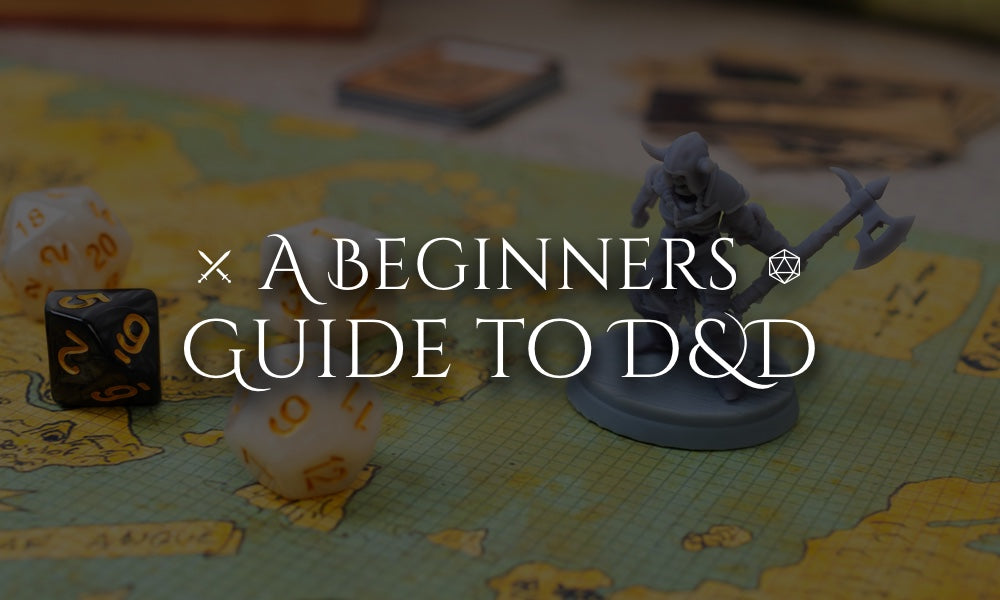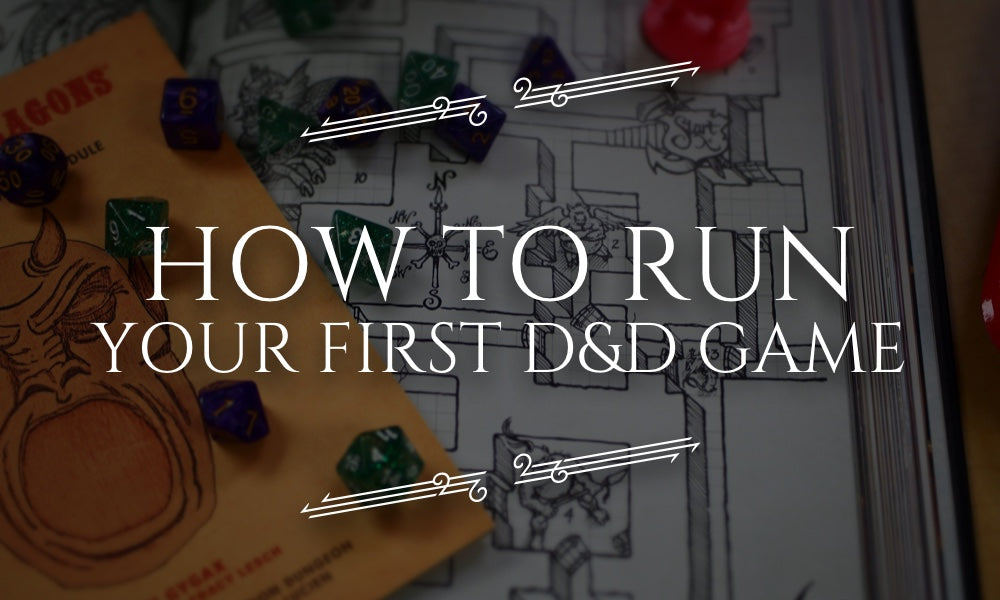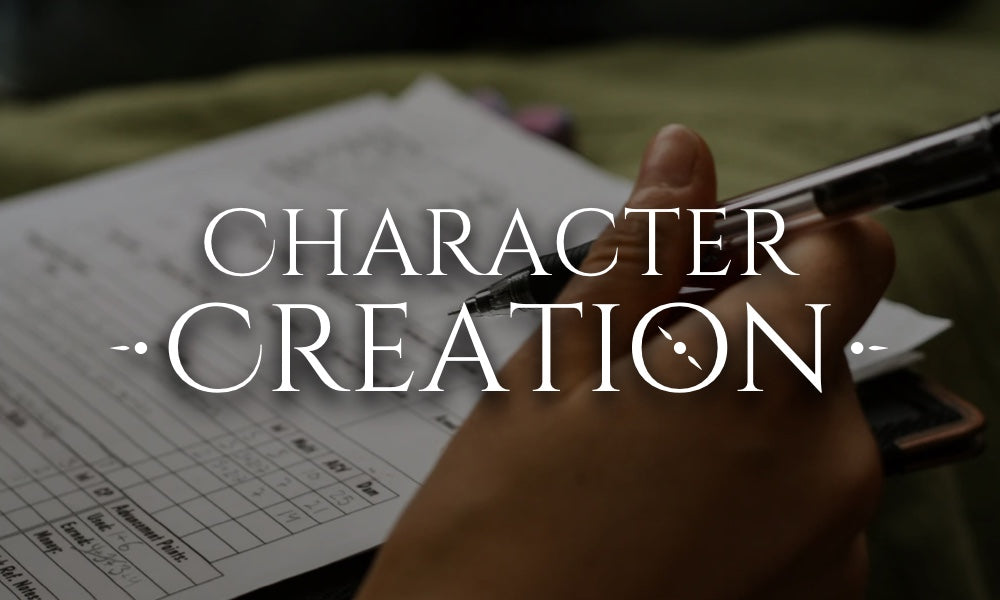
A Beginners Guide to D&D: How To Start as a Player
Starting to play Dungeons & Dragons (D&D) can be a fun and exciting experience for both new and experienced players. Whether you're a seasoned role-player looking to try something new or a complete newcomer to the world of tabletop gaming, D&D is a great way to spend time with friends, exercise your creativity, and challenge yourself in new ways.
If you're interested in starting to play D&D as a player, here are some steps to help you get started:
-
Find a Dungeon Master (DM): The DM is the person who runs the game and creates the story that the players will experience. The Dungeon Master will often take the lead arranging the game, setting time and location for session and generally being the boss.
You'll need to find a DM who is willing to run the game and guide you through the rules. If you're part of a local group, the DM may be someone you know personally. If you're playing online or with a group of strangers, you may need to search for a DM through websites or forums dedicated to tabletop gaming. -
Create a character: In D&D, each player controls a character that they create and play as. You'll need to decide on a character concept and choose a race and class that fits that concept. There are many resources available online to help you create a character, such as the official D&D Player's Handbook or character creation guides on websites like D&D Beyond. Take your time to consider the different options and think about what kind of character you'd like to play.
Creating a character can be a complex process with dozens of race, class and specialisation combinations to choose from. For a comprehensive guide on creating a character, checkout our detailed character guide here → -
Learn some rules: Familiarize yourself with the basic rules of the game. You don't need to know every rule right away, but it's helpful to have a general understanding of how the game is played. You can find the basic rules for free on the official D&D website, or you can purchase a copy of the Player's Handbook for a more in-depth look at the rules. Your DM should also be able to help you understand the rules and answer any questions you might have.
-
Show up to the game prepared: Make sure you have all of the necessary materials for the game, including dice, a character sheet, and any other resources you might need. If you're using a character creation guide or website, it's a good idea to print out a copy of your character sheet and bring it with you to the game. It's also a good idea to bring a notebook and pen or pencil to take notes and record important information during the game.
-
HAVE FUN!: D&D is a social game, so remember to relax and have fun with it. Don't worry if you make mistakes or if you're not sure what to do – the DM is there to help guide the game and answer any questions you might have. Above all, remember to be respectful of your fellow players and the DM, and be open to new experiences and challenges.
It's important to remember that while having resources like the Player's Handbook and knowing the rules of the game can be helpful, they are not the most important factor in having a successful and enjoyable D&D experience. A willingness to pay attention, listen, and learn is often more important than knowing every rule or having every resource.
In D&D, the DM is responsible for running the game and guiding the players through the story. As a player, it's your job to listen to the DM's instructions and follow the rules of the game to the best of your ability. If you make a mistake or don't know what to do, don't be afraid to ask questions or seek help from the DM or your fellow players. By being open to learning and trying new things, you'll be able to get the most out of your D&D experience and have more fun along the way. So, having all the books and knowing all the rules is not as important as having a willingness to pay attention and learn.
Playing D&D can be a rewarding and enjoyable experience for players of all ages and skill levels. With a little bit of preparation and a willingness to learn and try new things, you'll be well on your way to becoming a skilled D&D player.


